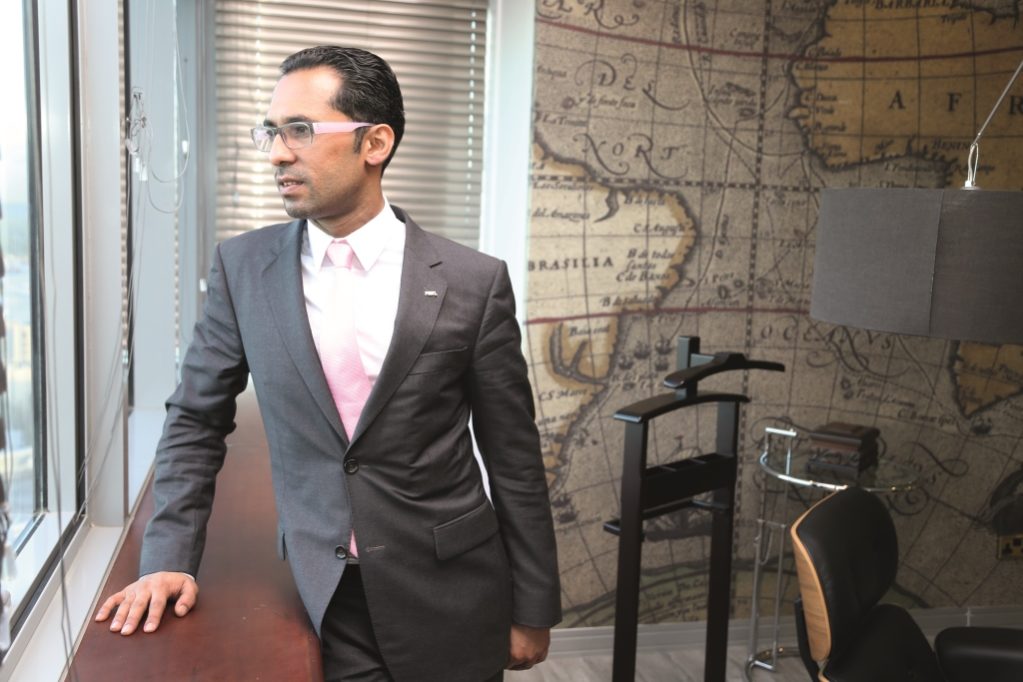The test-tube sized bottles go into the piping machine. After being heated, they’re blown into shape and then filled with the carbonated soda. Out on the other side pops the brown flavored drink, Mo Cola. It hopes to compete with industry heavyweight Coca-Cola. Good luck.
Coca-Cola, ranked third on FORBES’ list of the most powerful brands in the world, is a force to be reckoned with. The company owns 40% of the market share in Tanzania and will attack any company that tries to take the smallest percentage away.
Here in Dar es Salaam, the rivalry for the best carbonated drink is fought out between Coca Cola and Pepsi. But, Mohammed Dewji, the CEO of the MeTL Group, is expanding his billion-dollar empire worth $1.2 billion on the FORBES rich list.
MeTL has invested more than $48 million into the drink called MO. It is available in a variety of flavors including orange, mango, lemon, malt and cola.

Loading...
Although Coca-Cola has managed to shut down many of its competitors, is Mo-Cola something they should be worried about?
“Whether they are nervous or not, I don’t know. But I tell you something, I don’t have much to lose, if anything they have market share to lose; I have zero market share. The only thing that can happen is I’ll go up; right?” says Dewji.
But he is not the first to go up against the industry giant. The list is long: Afri-Cola, Qibla Cola, Zam Zam Cola, Kola Real and, Coca-Cola’s biggest rival, Pepsi.
In 1994, Richard Branson launched Virgin Cola. In an interview with the Wall Street Journal he said he thought Virgin Cola was going to become the number one brand in the world. They had the right resources and the right people, so what went wrong?
“We decided to take on the might of Coca-Cola. We had a great brand we had a great product [and] it tasted better than Coke. We launched in the United Kingdom, we were outselling Coke, we were outselling Pepsi and for one wonderful year we had dreams of Virgin Cola being the number one brand on everyone’s lips when they wanted to buy a soft drink,” says Branson.
Unfortunately, Branson would never see that dream come true. Someone in Atlanta warned the then president of Coca-Cola, Roberto Crispulo Goizueta, of the Brit who was becoming a problem.
“Soon every retailer we were in, we found Virgin Cola disappearing from the shelves,” says Branson.
And just like that Virgin Cola was history.
This history doesn’t worry Dewji. He took 35% of the detergent market share from Proctor and Gamble. Fast growth in the edible oils sector saw them dominate 60% of the market share, beating Unilever.
“I’m not saying that brand consciousness doesn’t exist, but I believe that price consciousness is very important. I think that if I give a good product at the right price I can repeat the stories like I’ve done with my edible oil and soap and detergent powder,” he says.
So let’s say Dewji gains market share, ruffling a few white and red feathers. Then, Coke offers Mo-Cola a deal he cannot refuse. Will Dewji sell?
“I’m yet to sell a business. At the end of the day, I’m not emotionally attached to companies, I’m attached to values so anything at a right price, at my price, why not? I would sell any business,” he says.
But Dewji’s mind is far from failure. He’s banking on the MeTL Group’s vast distribution network of more than 100 depots in Tanzania and 2000 transportation vehicles that deliver, door to door, deliveries for many of their products, which include everything from detergents to tooth picks, bubblegum and pens.
“My strategy is to be able to make it affordable to the normal person on the street. I’m not saying I’m going to play the price strategy but this is going to be a surprise for everyone; whether I will sell the same milliliters as they will we don’t know, whether I will sell more for the same price we don’t know or whether I will sell 50ml at a much less price, I don’t know.”
MeTL is in 10 African countries: Tanzania, Uganda, Kenya, Rwanda, Burundi, Eastern Congo, South Sudan, Malawi, Mozambique and Ethiopia. The group also trades internationally.
Within the year, Dewji hopes to snatch 10% of the market share from Tanzania’s Coca-Cola plant. Only time will tell if Mo-Cola will rival Coca-Cola or be slaughtered like Virgin Cola.
Loading...
